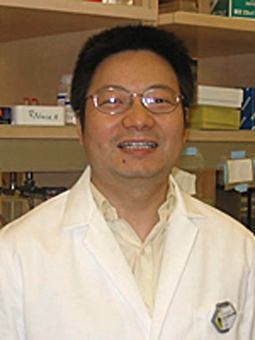case licenses breakthrough cancer tech to genetics firm

In a laboratory at Case Western Reserve University's
School of Medicine, Zhenghe John Wang and a team of researchers
developed a panel of new human isogenic cell models, which look much
like mutated cancer cells. Through these cell models, researchers can
get a handle on how cancer takes shape in the human body.
"We actually created a technology where we can add tags into cancer
cells so we can track them," says Wang, assistant professor of genetics
at Case's School of Medicine. Not only can this technology help
researchers to better understand how cancer cells evolve, it can also
provide assistance with cancer treatment programs, Wang says.
Now this process has an even greater chance of affecting cancer
treatments, as medical research company Horizon Discovery has obtained
exclusive rights to the panel of new human isogenic cell models. This
means that the British medical research company will be able to add this
technology to its existing models, which are used to predict patient
response to current and future drug treatments.
Horizon Discovery has licensed the new cell models for ten years and
will pay Case an initial fee, with rights to royalties from future
product sales.
"We really wanted to work with someone interested in this technology,"
Wang says, adding that the agreement with Horizon Discovery will allow
for research on a grander scale. Meanwhile, Wang and his team will
continue to advance use of human isogenic cell models at Case.
"Hopefully, we can make a big impact on cancer research," he says.
SOURCE: Case Western Reserve University
WRITER: Diane DiPiero
